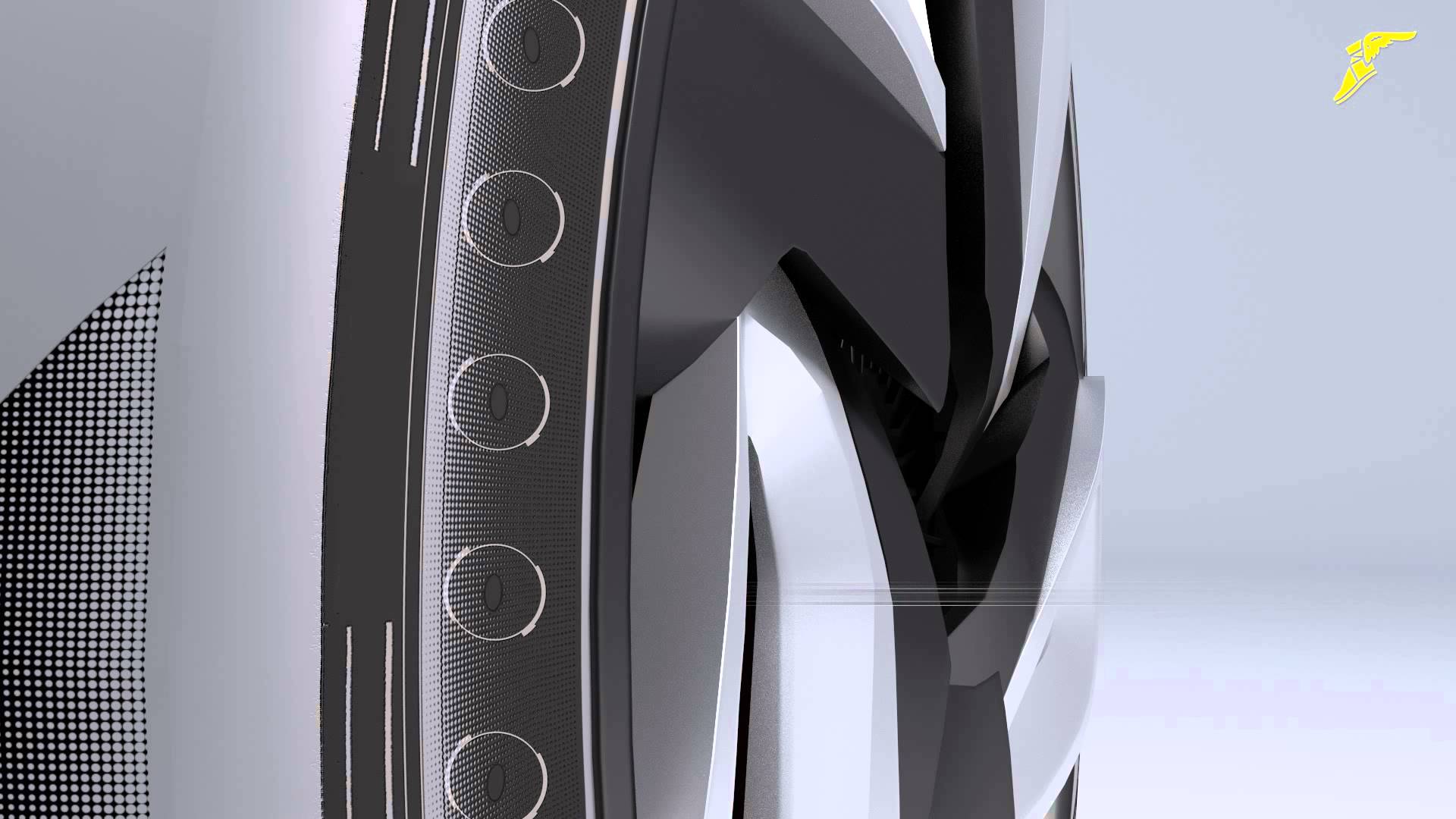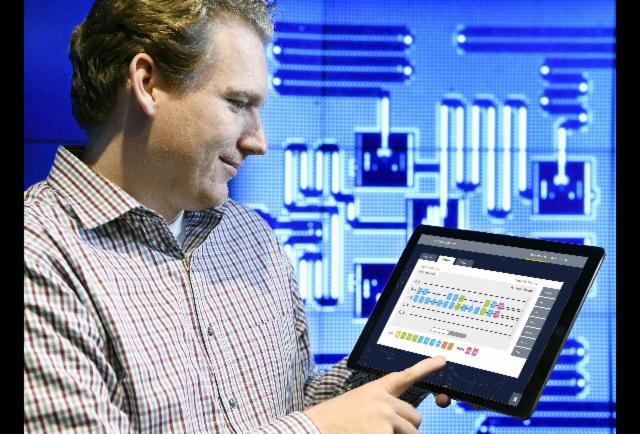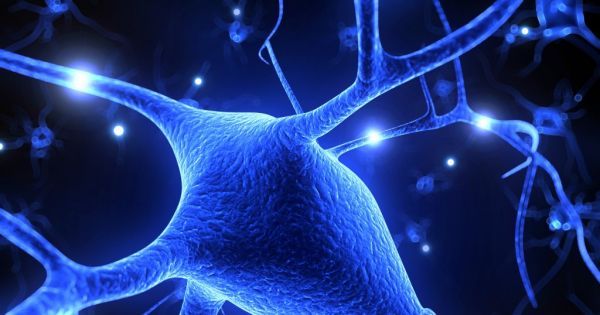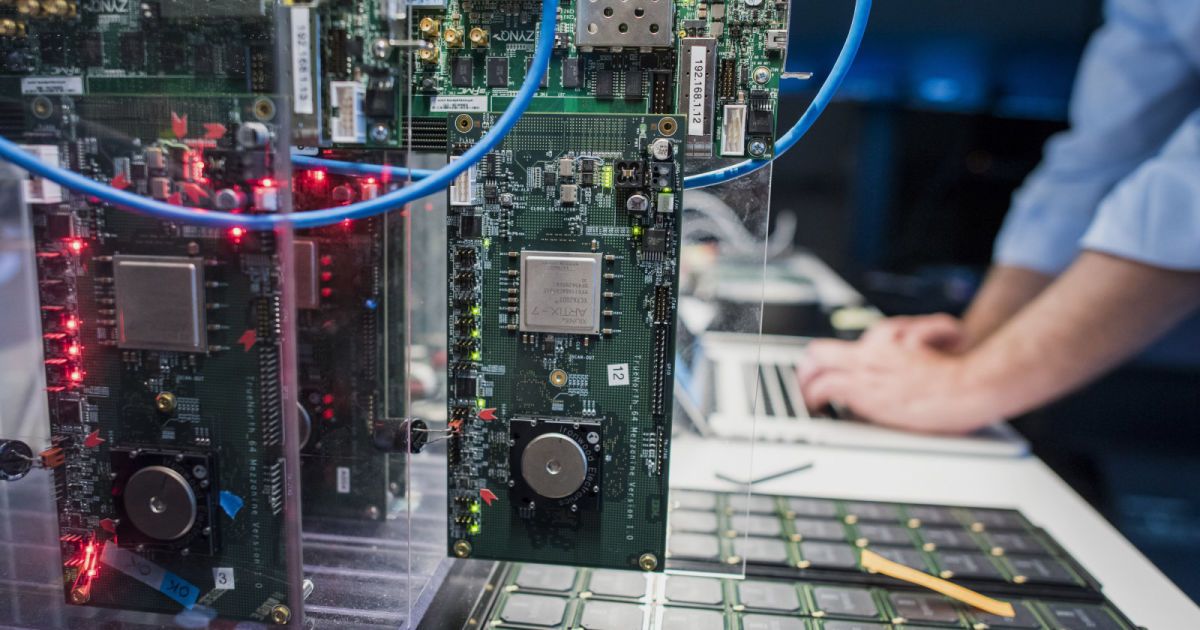Page 10654
Aug 15, 2016
Progress toward real life super-soldiers
Posted by Klaus Baldauf in categories: bioengineering, computing, military
For three years ago U.S. Special Operations Command and DARPA announced they had started work on a super-soldier suit called TALOS (Tactical Assault Light Operator Suit) unlike anything in the history of warfare. It is engineered with full-body ballistics protection; integrated heating and cooling systems; embedded sensors, antennas, and computers; 3D audio (to indicate where a fellow warfighter is by the sound of his voice); optics for vision in various light conditions; life-saving oxygen and hemorrhage controls; and more.
It aims to be “fully functional” by 2018. “I am here to announce that we are building Iron Man,” President Barack Obama said of the suit during a manufacturing innovation event in 2014. When the president said, “This has been a secret project we’ve been working on for a long time,” he wasn’t kidding.
In 1999 DARPA created the Defense Sciences Office (DSO) and made Michael Goldblatt its director. Goldblatt saw the creation of the super-soldier as imperative to 21st-century warfare.
Continue reading “Progress toward real life super-soldiers” »
What will be most interesting about the next 15 years is that unlike the last 15, which was largely defined by digital technology, the advancements to come will arise from the confluence of a number of fields.
Exponentially more powerful computing architectures will make it possible for us to work at the genomic and molecular levels and create intelligent machines. New sources of energy, as well as the ability to store that energy far more efficiently, will allow these technologies to be practical, safe and affordable.
Today, in 2016, we have largely mastered the virtual world of information. By 2031, we will have begun to master the physical world as well.
Aug 15, 2016
Stroke Survivor Walks Again After Doctors Inject Stem Cells Directly into Brain
Posted by Shailesh Prasad in categories: biotech/medical, neuroscience
A surgical procedure that involves drilling holes and injecting stem cells into stroke patients’ brains seems to have contributed to a wheelchair-bound stroke patient regaining the ability to walk. Despite the major recovery exhibited by patients, further study must be made to investigate the true impact.
Researchers from Stanford University were “stunned” at the positive results they obtained after injecting stem cells directly into stroke patients’ brains. The discovery has created a talking point in the neuroscience community, causing researchers to re-visit and re-evaluate the notion that brain damage is permanent and irreversible.
Surgical Procedure
Continue reading “Stroke Survivor Walks Again After Doctors Inject Stem Cells Directly into Brain” »
Aug 15, 2016
Goodyear’s energy-generating tire could charge your electric car
Posted by Shailesh Prasad in categories: energy, transportation

Goodyear’s BH03 concept tire looks to capture the heat generated by tires when they move, and why they absorb sunlight when stationary, to charge electric car batteries.
Aug 15, 2016
Samsung plugs IBM’s brain-imitating chip into an advanced sensor
Posted by Shailesh Prasad in categories: biotech/medical, computing, mobile phones, neuroscience
IBM’s TrueNorth, a so-called “cognitive chip,” remarkably resembles the human brain: its 4,096 cores combine to create about a million digital neurons and 256 million synapse connections. In short, like everyone’s favorite complex organ, it operates extremely quickly and consumes far less energy than typical processors. Samsung has taken the chip and plugged it into its Dynamic Vision Sensor (DVS) to process digital imagery at a blindingly fast rate.
Typical digital cameras max out 120 frames per second, but a DVS-equipped gadget can capture an incredible 2,000 fps. Unlike a conventional sensor, each pixel on Samsung’s only reacts if it needs to report a change in what it’s seeing, according to CNET. That high speed could be useful for creating 3D maps or gesture controls. At a press event on Thursday in San Jose, the company demonstrated its ability to control a TV as it recognized hand waves and finger pinches from ten feet away.
DVS is efficient like its TrueNorth chip base, and only consumes about 300 milliwatts of power. That’s about a hundredth the drain of a laptop’s processor and a tenth of a phone’s, a Samsung VP said at the event. But we still have a ways to go before we approach the minimal power requirements of the human brain, he said, which can process some tasks at 100 million times less power than a computer.
Continue reading “Samsung plugs IBM’s brain-imitating chip into an advanced sensor” »
Aug 15, 2016
The Future Of Roads Could Mean Cars Not Having To Stop At Intersections
Posted by Shailesh Prasad in categories: mathematics, transportation
Researchers at MIT and ETHZ have developed a working mathematical model for slot-based intersections. If successful, traffic efficiency would double and pollution would be greatly reduced.
Aug 15, 2016
Researchers devise method for bone marrow transplants without using chemotherapy
Posted by Shailesh Prasad in category: biotech/medical
Scientists have devised a way to destroy blood stem cells in mice without using chemotherapy or radiotherapy, both of which have toxic side effects.
Aug 15, 2016
It’s Time for Fancy Apartments to Offer Balconies for Drone Landings
Posted by Shailesh Prasad in categories: drones, habitats
Make no mistake: Drones are coming, and they’re going to change a lot of things about how we shape our lives. So why shouldn’t we change how we shape our buildings to get ready for them?
Early adopters will probably buy personal flying vehicles in the not too distant future. Some models are being developed as we speak. Maybe an innovative architectural firm will even pitch the idea of building a ‘drone-ready’ condo tower in Japan or Dubai in the coming months—and maybe it will sell faster than we think.

















